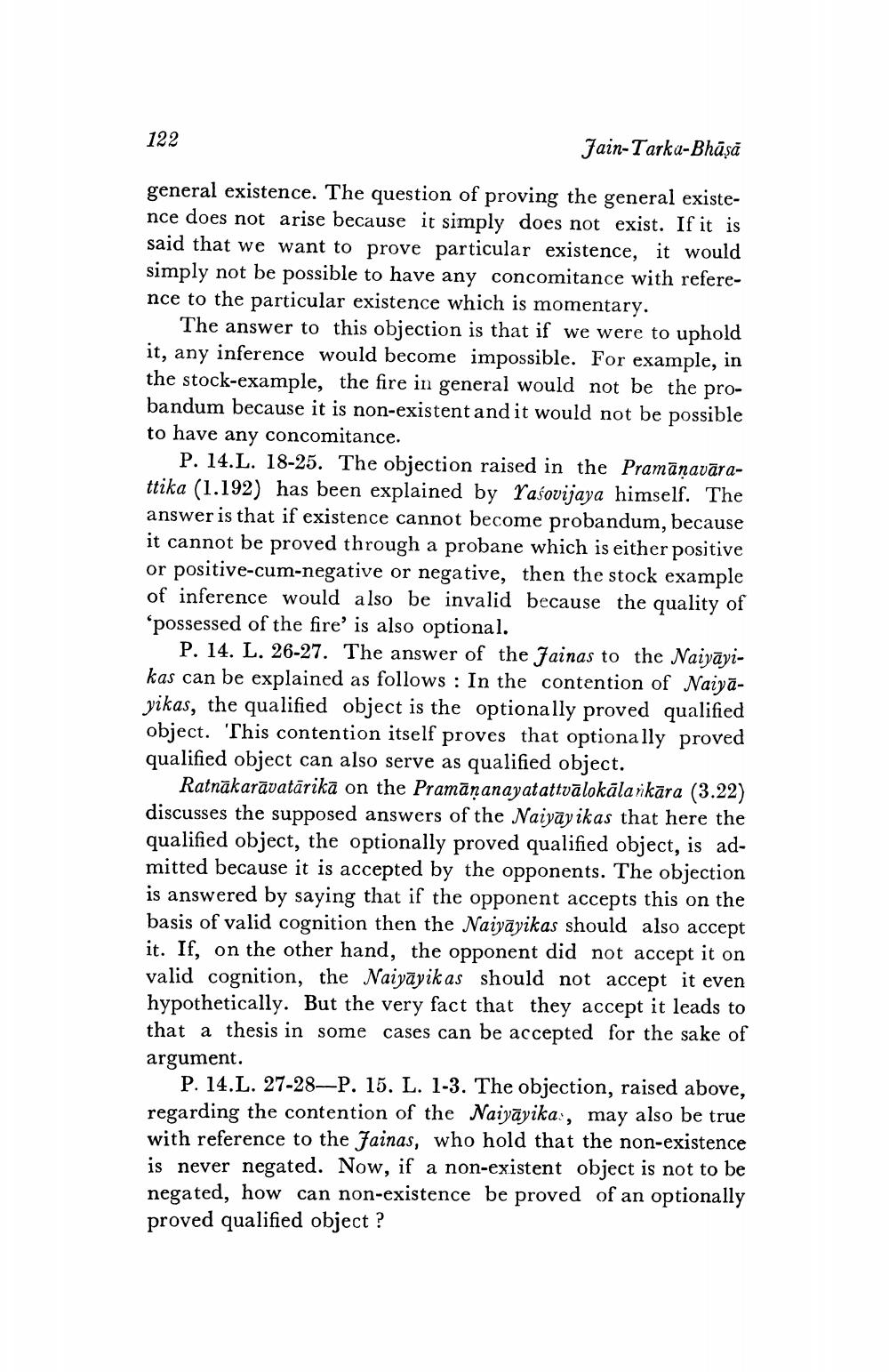________________
122
Jain-Tarku-Bhāṣā
general existence. The question of proving the general existence does not arise because it simply does not exist. If it is said that we want to prove particular existence, it would simply not be possible to have any concomitance with reference to the particular existence which is momentary.
The answer to this objection is that if we were to uphold it, any inference would become impossible. For example, in the stock-example, the fire in general would not be the probandum because it is non-existent and it would not be possible to have any concomitance.
P. 14.L. 18-25. The objection raised in the Pramāņavārattika (1.192) has been explained by Yasovijaya himself. The answer is that if existence cannot become probandum, because it cannot be proved through a probane which is either positive or positive-cum-negative or negative, then the stock example of inference would also be invalid because the quality of “possessed of the fire' is also optional.
P. 14. L. 26-27. The answer of the Jainas to the Naiyāyikas can be explained as follows: In the contention of Naiyayikas, the qualified object is the optionally proved qualified object. This contention itself proves that optionally proved qualified object can also serve as qualified object.
Ratnākarāvatārikā on the Pramānanayatattvālokālankāra (3.22) discusses the supposed answers of the Naiyāyikas that here the qualified object, the optionally proved qualified object, is admitted because it is accepted by the opponents. The objection is answered by saying that if the opponent accepts this on the basis of valid cognition then the Naiyāyikas should also accept it. If, on the other hand, the opponent did not accept it on valid cognition, the Naiyāyikas should not accept it even hypothetically. But the very fact that they accept it leads to that a thesis in some cases can be accepted for the sake of argument.
P. 14.L. 27-28—P. 15. L. 1-3. The objection, raised above, regarding the contention of the Naiyāyika, may also be true with reference to the Jainas, who hold that the non-existence is never negated. Now, if a non-existent object is not to be negated, how can non-existence be proved of an optionally proved qualified object ?




